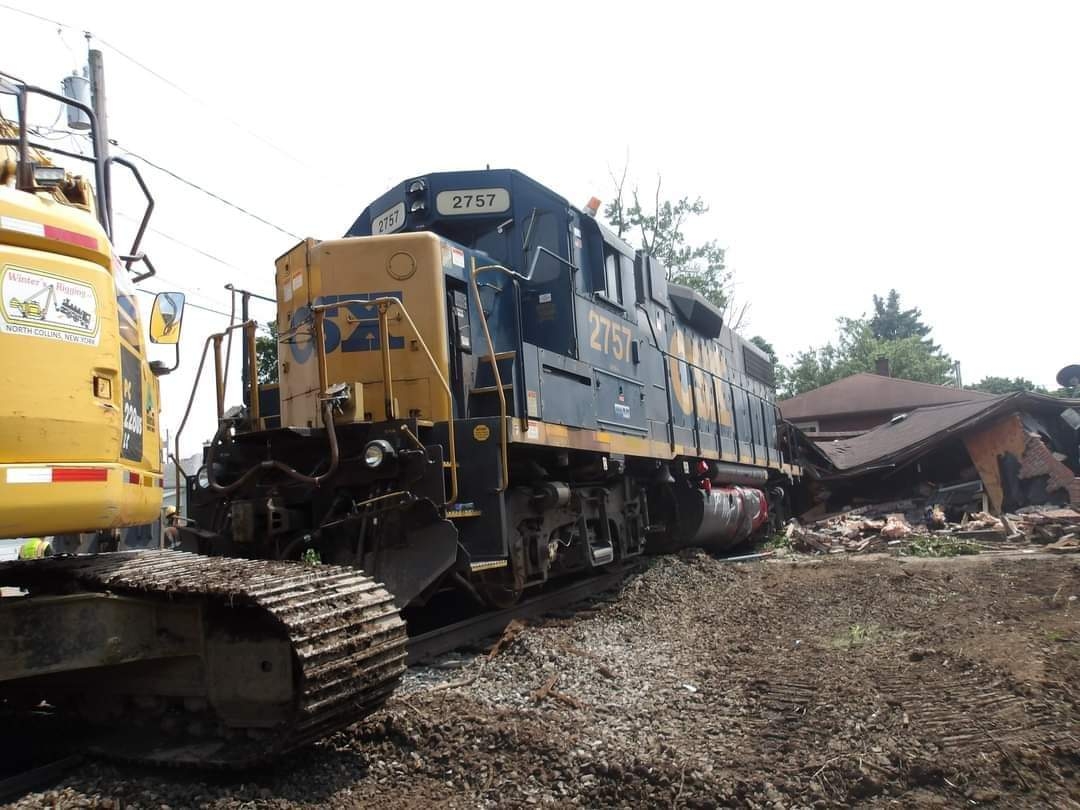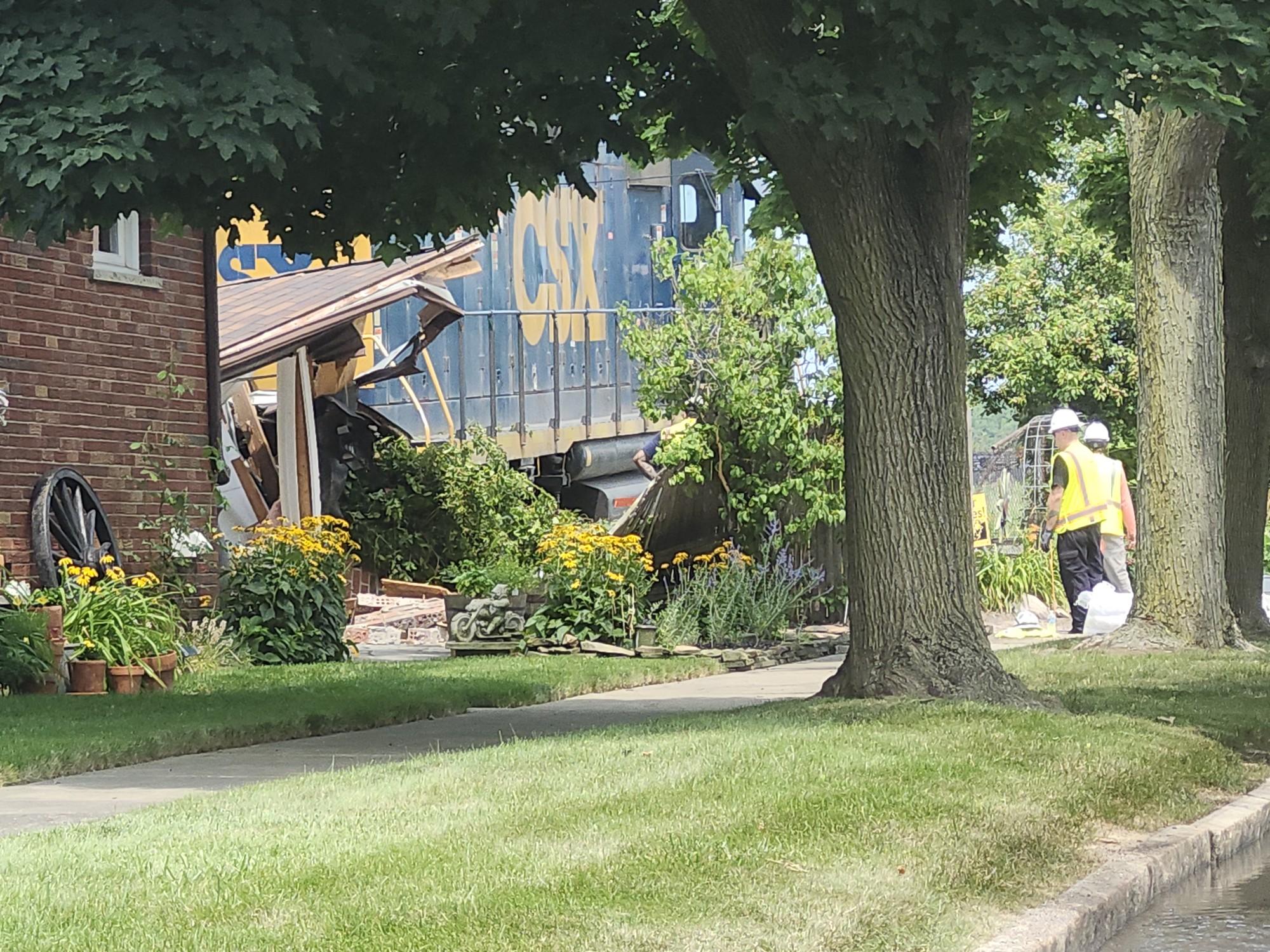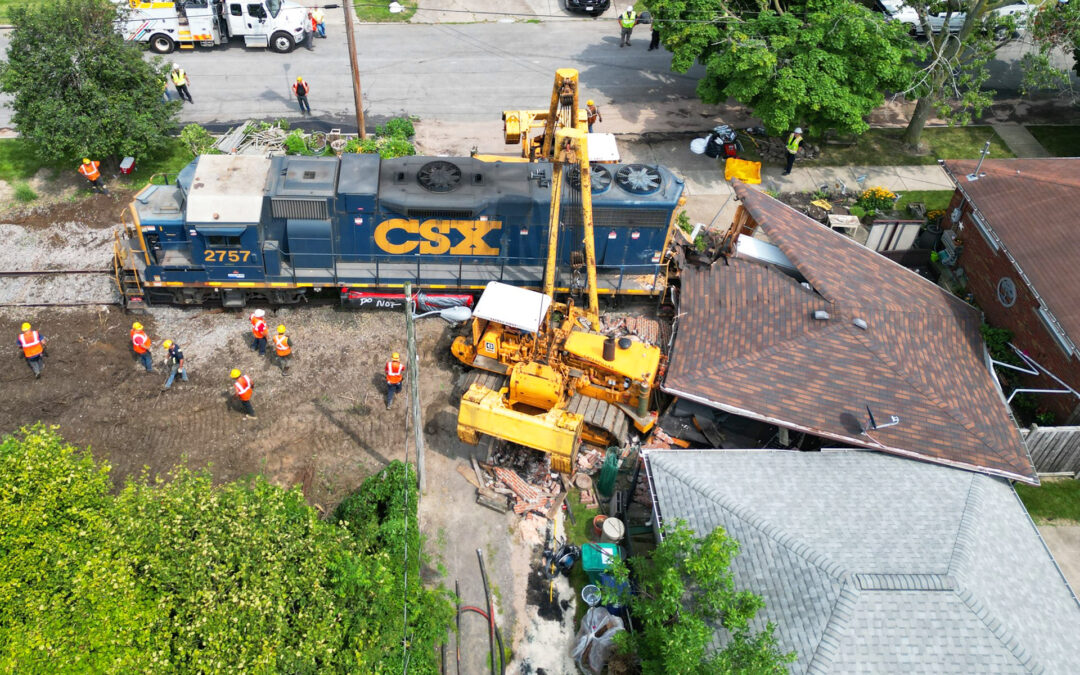The BLET obtained this drone footage showing the aftermath of a July 22 CSX remote control derailment in Niagara Falls, N.Y.
____________________
A CSX locomotive derailed in upstate New York on July 22, the latest in an alarming string of derailments involving remote control technology.
According to Trains.com, the locomotive overran a wye at the end of CSX’s rail yard in Niagara Falls, derailing into a residential neighborhood where it destroyed a brick garage and spilled up to 2,000 gallons of diesel fuel into sewers. No injuries were reported.
The BLET has led the way in warning the public about the dangers posed by remote control locomotives. Since the Houston Chronicle published National President Eddie Hall’s column about Union Pacific’s use of remotes in 2023, major national news stories quoting BLET leaders have appeared in the Associated Press, NBC News and the New York Times. BLET also exposed UP’s plans to expand use of remote control in Las Vegas.
Railroads are aggressively expanding their remote operations, routinely running remote trains not just inside rail yards but also between them. Many now run through residential and commercial neighborhoods, sometimes carrying hazardous cargo such as petroleum or hydrochloric acid. In addition, railroads are increasing the length of trains operated by remote control. Union Pacific has operated remote trains of up to 160 cars, or 1.5 miles long, which is about three times longer than FRA recommendations. It’s a cost-cutting move by the railroads, as remote control operators are lower paid and less trained than certified locomotive engineers.
These risky operations have led to derailments, injuries, and death. A CSX worker in Ohio was killed in a remote control accident in 2023, and a BNSF worker in Colorado was killed in another remote control accident in 2022.
Regarding the Niagara Falls derailment, President Hall said: “It’s of grave concern to railroaders and the public that this remote control unit derailed into a residential neighborhood and spilled thousands of gallons of diesel fuel into waterways. While no one was injured, the absence of an injury does not equate to safety. These questionable remote control operating practices put railroad workers and the general public at risk, and the BLET will continue to sound the alarm as loudly as possible as we continue to advocate for rail safety.”



